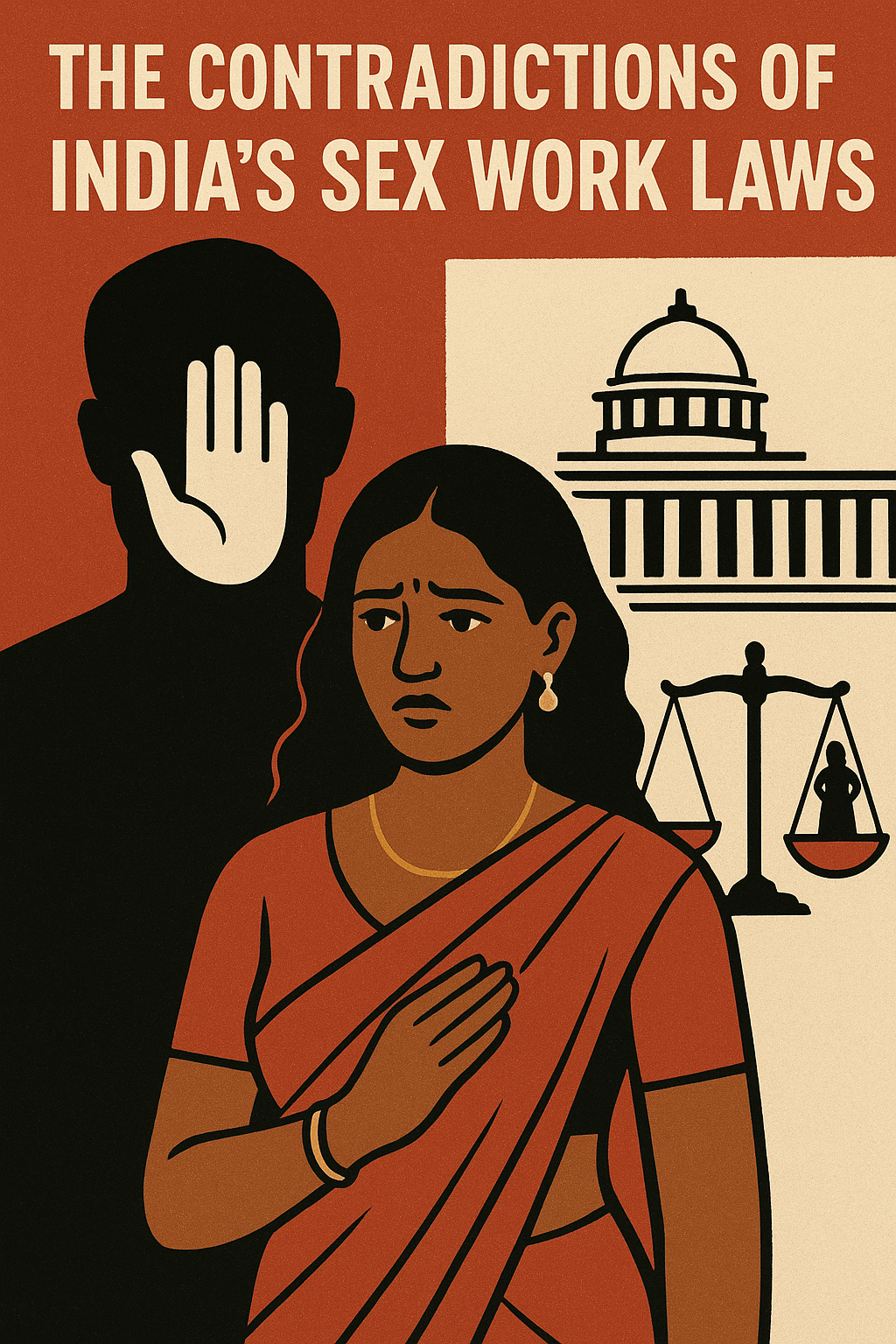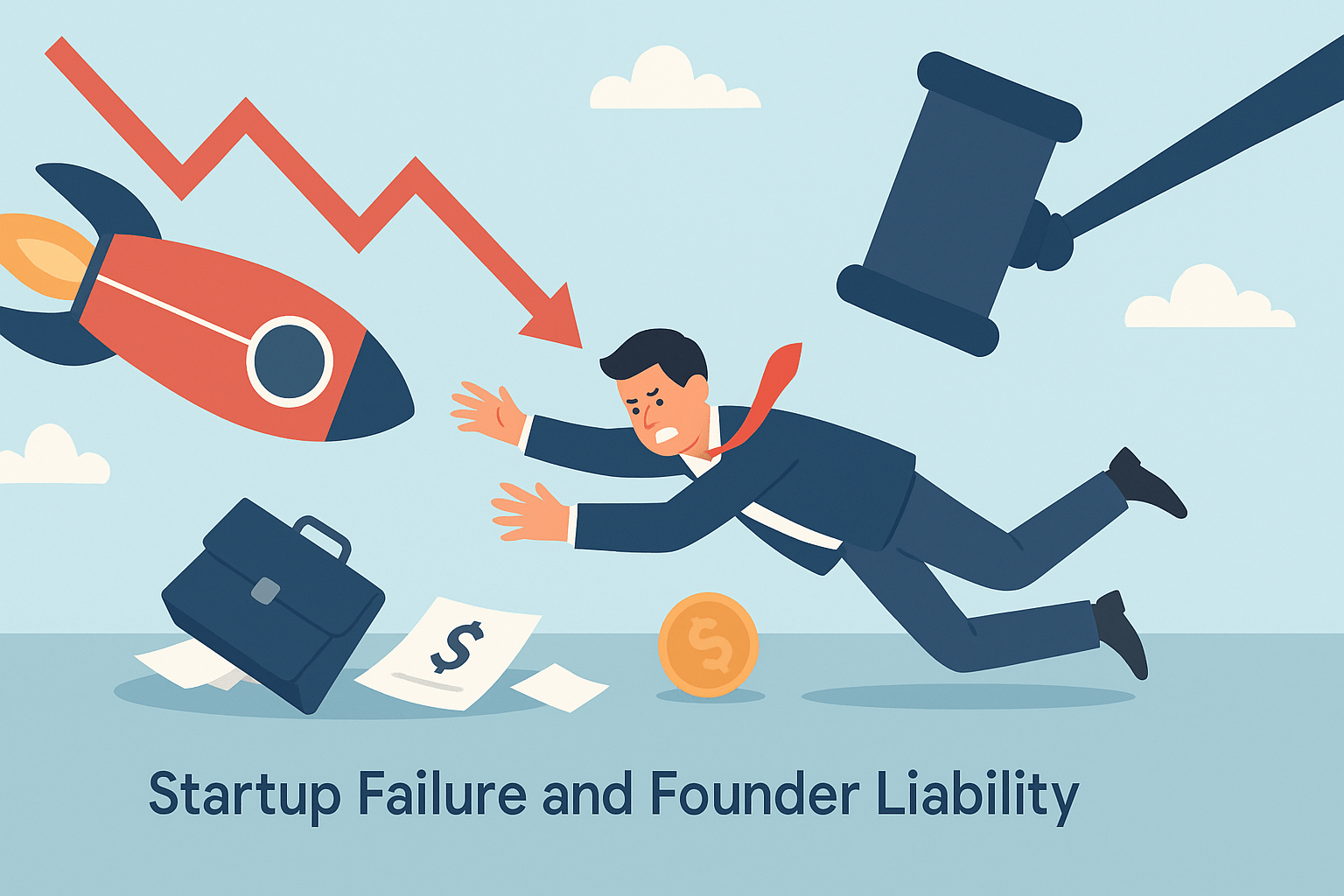



Author – Anisha
College – Chanderprabhu Jain College
India has quickly appeared as one of the world’s largest startup ecosystems. This rush in entrepreneurial activity has been instrumental in driving innovation, creating employment, and attracting global investment. Regardless of this magnificent growth, the defect rate among Indian startups remains alarmingly high. Studies suggest that nearly 90% of startups fail within their initial years of operation.
While failure is an inherent risk in any entrepreneurial venture, what remains legally unclear in India is the extent to which founders can be held personally liable when startups collapse. Increasingly, cases are being reported where founders face criminal complaints, arrests, and protracted litigation not due to fraudulent conduct, but simply due to business failure or inability to repay investors and vendors.
Not every startup succeeds, and that’s completely normal. Failure is part of the business journey. However, in India, the causes of startup failure are often misunderstood. Understanding the cause is important before blaming the founders or dragging them into legal battles.
The following are some of the root causes why startups fail in India:
Many startups build products or services that people don’t need or want. Without solving a real problem, it’s hard to survive.
Startups often burn cash quickly and do not manage their finances well. They may overspend on marketing, hire too fast, or fail to raise the next round of funding.
Disputes between co-founders over control, vision, or equity can break down the company from within.
Startups in sectors like fintech, health tech, and edtech often face sudden government regulations or compliance issues that disrupt operations.
Startups often fail to compete with bigger players or international companies with deeper pockets and larger teams.
Hiring the right talent, building supply chains, managing customer complaints—all of these are tough, especially for early-stage startups.
Failure ≠ Fraud
When a startup fails, the law should ideally protect genuine entrepreneurs and punish only those who have committed fraud or broken the law. However, in India, the legal framework is often misused or misunderstood, leading to unfair criminal cases against startup founders. Let’s break down the key laws that affect founder liability:
The Companies Act governs how companies are formed, run, and shut down. Founders (usually directors) have some legal protections but also certain responsibilities.
Section 166
Section 447
Section 2(60)
This law helps companies resolve debt issues in a structured way. It also protects businesses from harassment by creditors during insolvency.
This is where things get tricky. Investors or creditors often use criminal provisions to pressure founders even when there is no fraud involved.
Related Sections [which are also often misused]:
India has no single, clear law that defines what happens when a startup fails. This creates:
1) Serious Fraud Investigation Office v. Rahul Modi, (2019) 5 SCC 203 :-
Held: The Supreme Court allowed lifting the corporate veil to hold individuals personally liable because there was clear evidence of fraud and dishonesty.
Relevance: This sets a benchmark: courts will impose liability only when fraud is proven—not for mere business failure.
2) S. Rajendran v. State of Tamil Nadu, (2020) SCC OnLine Mad 10119 :-
Held: The court condemned the misuse of criminal proceedings in a matter that was fundamentally civil in nature and proceeded to set aside the FIR.
Relevance: This case warns against using criminal law as a recovery tool against failed entrepreneurs.
While statutory laws shape the general liability framework, a significant portion of founder liability arises from private contractual agreements, particularly with investors. Most startups enter into Shareholder Agreements (SHAs) and term sheets that contain clauses on personal guarantees, indemnities, and warranties. In the event of startup failure, these clauses are often invoked by investors to hold founders personally accountable, sometimes resulting in civil suits or criminal complaints. Founders may unknowingly agree to obligations that extend beyond the company, exposing them to post-failure legal action.
Additionally, investor-driven contracts often contain clawback clauses or broad definitions of “misrepresentation,” which can be triggered during financial distress. This contractual overreach, coupled with the absence of protective startup legislation in India, creates a situation where founders bear disproportionate risks even when acting in good faith.
To reduce this risk, founders must be encouraged to seek legal advice before signing agreements and ensure that failure-related liability is clearly defined and limited. This also calls for standardisation of founder-investor contracts and legal awareness programs to balance investor interests with founder protection.
While laws may exist on paper, startup founders in India face serious practical challenges when things go wrong. Most are not legal experts, they’re entrepreneurs taking risks. But when a startup fails, these founders often find themselves fighting not just financial losses, but also legal threats, criminal charges, and reputational damage.
Many founders fear that if they fail, vendors, investors, or lenders will file criminal complaints (under IPC Sections 406 or 420). Even when the dispute is purely civil, they may be:
This creates a “fear of failure” in the startup community, and discourages risk-taking.
Startups are regulated by multiple bodies:
But there is no single legal framework that protects founders in case of genuine failure. This leads to: Confusion, Delays in resolution, Increased legal costs.
In developed countries, startup founders usually have Directors & Officers (D&O) liability insurance to protect them against lawsuits. In India:
India lacks clear definitions around:
This leaves founders open to legal harassment, often based on interpretation or malice.
Related Article You Must Like
India’s startup boom is a symbol of innovation and ambition, but without legal reforms, it risks becoming a legal trap for entrepreneurs. If founders fear litigation and arrest for honest failure, they will either stop innovating or move abroad. It’s time India creates a legal framework that supports risk-taking while still ensuring accountability.
Below are key recommendations to address founder liability and bring clarity to startup failure scenarios:
Create specific laws or rules that protect founders from criminal and civil liability in case of genuine business failure.
Criminal provisions like Section 420 IPC (cheating) and Section 406 (breach of trust) should not apply to civil business disputes without solid evidence.
Simplify and fast-track voluntary shutdown procedures for failed startups under the Companies Act and IBC.
Amend the Companies Act to cover a direct definition of “founder fraud”.
Not all mismanagement should be treated as fraud the law must recognize:
Bad decisions ≠ bad intent,
Unsuccessful startups ≠ criminal enterprises.
Many founders unknowingly sign personal guarantees or breach compliance regulations, unaware of the serious legal consequences that may follow. Startup India should offer:
India’s vibrant startup ecosystem is one of its biggest economic success stories, but its legal framework has not kept pace with the risks and realities of entrepreneurship. As thousands of startups launch every year, many are bound to fail, not because of fraud or mismanagement, but because failure is an inevitable part of innovation.
Unfortunately, in India, founders are often treated as criminals when their startups fail. They face legal harassment, FIRs, and even arrest even when they acted in good faith. This legal uncertainty not only demoralizes entrepreneurs but also discourages innovation, investment, and economic growth.
There is an urgent need to draw a clear legal line between honest failure and fraudulent conduct. Startups require safe harbor protections, faster exit mechanisms, and founder-friendly policies to function in an environment where risk-taking is respected, not punished.
If India truly wants to become a global startup hub, it must modernize its laws, educate its entrepreneurs, and protect those who dare to build. Legal reform is not just a policy necessity, it is a commitment to the future of Indian innovation.
https://www.thelegalyoungster.com/legal-internship/
https://www.thelegalyoungster.com/category/daily-news/